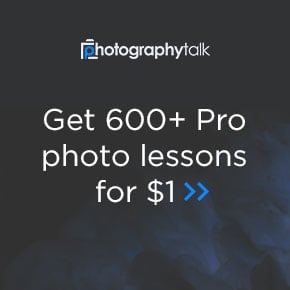- Forum
- General Discussion | Introductions | Off Topic Forum
- Photography General Discussion
- What's the point of a external light meter?
What's the point of a external light meter?
-
 Topic Author
Topic Author
- Raymond II
- Lone Wolf
- Nikon D80
- Followers: 31
- Posts: 180
-
Points:
443
Post #104422
-
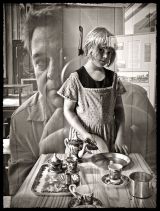
- Henry Peach
- Apprentice
-
- I currently use a 5DII or Sony Nex-3 most of the time.
- Followers: 50
- Posts: 2925
-
Points:
16
Post #104432
Incident meters measure the light falling on them. They are used by taking a reading in the same light as the subject. They are not affected by subject tonality.
I used to carry a hand held meter because most of the cameras I used didn't have built in meters, but since switching to shooting DSLRs it's mostly been sitting on the shelf. My hand held meter does have some features that are different than my in-camera meters, but nothing that I can't live without in most situations, if it means I don't have to carry another piece of gear.
People have many different reasons for tool selection. Maybe he's used to using hand held meters? Maybe he just wanted to buy some new gear?
-
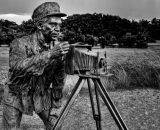
- McBeth Photography
- Photo Guru
-
- Sinar Norma 4x5
- Followers: 365
- Posts: 3870
-
Points:
1295
Post #104456
It is what it is.
-
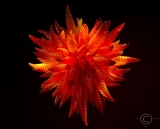
- John Landolfi
- Super User
-
- Nikon D3S, D7100, Sony RX10, Canon G11, F4s, F2sb, RetinaflexIV etc, etc
- Followers: 1205
- Posts: 21605
-
Points:
40394
Post #104556
-

- Rob pix4u2
- Photo Guru
- Nikon N90s & FE film & D90 and D90 digital bodies
- Followers: 196
- Posts: 4204
-
Points:
30
Post #104694
Remember to engage brain before putting mouth in gear
Rob Huelsman Sr.
My Facebook www.facebook.com/ImaginACTIONPhotography
-
 Topic Author
Topic Author
- Raymond II
- Lone Wolf
- Nikon D80
- Followers: 31
- Posts: 180
-
Points:
443
Post #104772
-

- Rob pix4u2
- Photo Guru
- Nikon N90s & FE film & D90 and D90 digital bodies
- Followers: 196
- Posts: 4204
-
Points:
30
Post #104836
Remember to engage brain before putting mouth in gear
Rob Huelsman Sr.
My Facebook www.facebook.com/ImaginACTIONPhotography
-

- Henry Peach
- Apprentice
-
- I currently use a 5DII or Sony Nex-3 most of the time.
- Followers: 50
- Posts: 2925
-
Points:
16
Post #105070
Raymond II wrote: Do you guys feel that sometimes the camera's meter can do just as good job as the hand held meter?
My in-camera meter measures for middle gray. My hand held meter measures for middle gray. They may have different ways of being used, or different features, but basically they do the same simple thing.
-
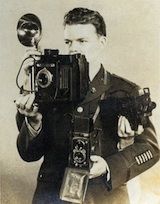
- MLKstudios
- Banned
-
- D800 ;-)
- Followers: 72
- Posts: 4480
-
Points:
2
Post #105078
Learning how to meter correctly is but one area, and every pro will develop their own metering style (or use more than one metering method, depending on the situation).
An 18% gray card is THE best tool to learn how your meter works.
Matthew
Matthew L Kees
MLK Studios Photography School
www.MLKstudios.com
[email protected]
"Every artist, was once an amateur"
-

- Henry Peach
- Apprentice
-
- I currently use a 5DII or Sony Nex-3 most of the time.
- Followers: 50
- Posts: 2925
-
Points:
16
Post #105084
-

- MLKstudios
- Banned
-
- D800 ;-)
- Followers: 72
- Posts: 4480
-
Points:
2
Post #105098
Later, you can add the Expose To The Right (ETTR) digital technique using the histogram to your photo tool kit. But, like the Zone System, you need to know how to read one correctly. For example, with a bright light behind, you can expect a blown out area to make a "good" exposure.
Matthew
Matthew L Kees
MLK Studios Photography School
www.MLKstudios.com
[email protected]
"Every artist, was once an amateur"
-
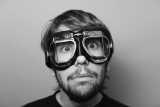
- Superman
- Photography Hooked
-
- Nikon D810 and Z6
- Followers: 118
- Posts: 688
-
Points:
2393
Post #105770
Henry Peach wrote: I don't use light meters much anymore. The histogram tells me a lot more information. It doesn't take me any longer to push a button on the camera and read the display as it does to push the button on a meter and read the display.
Nikon D90 & D40 18-55mm, 55-200mm, 35mm, 50mm, 105mm, SB600
-

- Henry Peach
- Apprentice
-
- I currently use a 5DII or Sony Nex-3 most of the time.
- Followers: 50
- Posts: 2925
-
Points:
16
Post #105784
Superman wrote:

How often are you checking your histogram? After each shot or as needed/curious?
I don't check it after every shot, but it's so easy and convenient to check that I probably check it more often than I really need to. I am most concerned about it when the lighting changes. I have my DSLRs set so the LCD remains off when I'm shooting. I hate it lighting up with my eye pressed to the viewfinder.
-

- Superman
- Photography Hooked
-
- Nikon D810 and Z6
- Followers: 118
- Posts: 688
-
Points:
2393
Post #105802
Henry Peach wrote:
Superman wrote:

How often are you checking your histogram? After each shot or as needed/curious?
I don't check it after every shot, but it's so easy and convenient to check that I probably check it more often than I really need to. I am most concerned about it when the lighting changes. I have my DSLRs set so the LCD remains off when I'm shooting. I hate it lighting up with my eye pressed to the viewfinder.
Gotcha, pretty much in the same boat. What camera you using?
Nikon D90 & D40 18-55mm, 55-200mm, 35mm, 50mm, 105mm, SB600
- Forum
- General Discussion | Introductions | Off Topic Forum
- Photography General Discussion
- What's the point of a external light meter?
Latest Reviews
The Fujifilm XT5 is a 40MP mirrorless camera capable of 6.2K video at 30p. With those specs, it’s an ideal choice for photographers needing a camera to pull double duty for imaging and video.
The Canon EOS R100 is an entry-level mirrorless camera introduced in 2023. But just because it’s an entry-level camera doesn’t mean it’s a bare-bones camera. Find out why in this review!
Nikon’s retro-looking Nikon Zfc is anything but retro. Under its classic body is a host of features and amenities that make it a worthwhile compact mirrorless camera for 2024.
The Canon EOS R50 is one of the newest R-system cameras from Canon. Is it worth your money? Find out all the details you need to know in this comprehensive review.
Forum Top Posters
-
1TCav 9 posts
-
2CharleyL 5 posts
-
3Sawyer 5 posts
-
4AstralArti... 3 posts
-
5Jason Stevens 3 posts
-
6db3348 3 posts
-
7Stanly 3 posts
-
8Randy Shaw 3 posts
-
9Razky 3 posts
-
10Moe 3 posts
Latest Articles
Urban photography is a genre showcasing features in urban settings. You can photograph people, architecture, mass transit, and many other subjects. Learn how to do so in this guide!
The Nikon D850 might be an older DSLR, but it was ahead of its time when it debuted in 2017. That means it still has plenty of firepower to compete with today’s powerful mirrorless cameras.
The best beginner camera isn’t the same for everyone. That means having choice is of the utmost importance. In this guide, explore five excellent beginner camera options for 2024 and beyond.
Child portrait photography is a unique undertaking requiring special skills and talents to get the best results. Start mastering this photography niche with these essential tips!
The Fujifilm XT5 is a 40MP mirrorless camera capable of 6.2K video at 30p. With those specs, it’s an ideal choice for photographers needing a camera to pull double duty for imaging and video.
Using leading lines in photography helps improve the composition by drawing viewers in and leading their eye from the foreground to the background. Explore some fine examples of this in this guide!
The Insta360 has one of the best lineups of action cams and 360-degree cameras. With these Insta360 accessories, you can elevate your photography and videography game!
Creating impactful photos of landscapes depends on many factors, not the least of which is your talent behind the lens. This guide explores other elements required for the best product.










